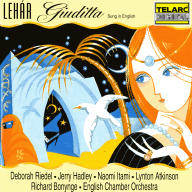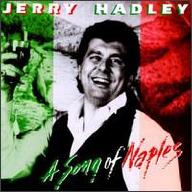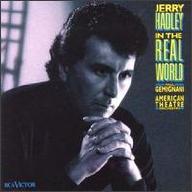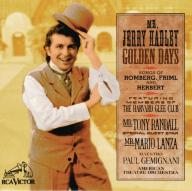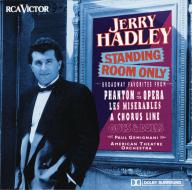His accident-prone New York debut notwithstanding, Hadley sang roles such as Pinkerton, Des Grieux (Massenet), Tom Rakewell, and Faust (Gounod) at the NYCO. His European debut was in 1982 as Nemorino at the Vienna State Opera, the same year that Hadley won the Richard Tucker Competition. In 1983, Hadley made his Glyndebourne debut as Idamante in Mozart's +Idomeneo, followed by his Covent Garden debut the next year as Fenton in +Falstaff. Hadley's Metropolitan Opera debut was in 1987 as Des Grieux; however, such roles as Offenbach's Hoffmann called for a technique that often "drew on capital," and this began to exact a price on Jerry Hadley's vocal flexibility and stamina in the later 1980s. By the end of the decade, Hadley's pitch was not as secure as it had been, and there was a rawness in his voice that had not been there before, but these years did witness some of his finest and most lasting achievements. In 1989, he had a superb turn in the title role of Leonard Bernstein's revision of the opera +Candide, and his recording of Show Boat in the restored scoring by John McGlinn was one of Hadley's most highly praised, and best-selling, recordings. Throughout the following decade, Hadley remained very visible, appearing with frequency in opera galas on American public television and recording for RCA Victor.
Jerry Hadley was a champion of 20th century music, both operatic and in the popular realm. In 1997, he created the title role of Myron Fink's +The Conquistador, and in 1999, that of John Harbison's +The Great Gatsby; Hadley also created the tenor lead in Paul McCartney's Liverpool Oratorio and headed up the cast of the premiere recording of the long delayed opera +Desire under the Elms by Edward Thomas. He recorded an exemplary Sam in Carlisle Floyd's +Susannah and his final recording, in the cast of Leos Janácek's opera +Jenufa led by Bernard Haitink, won a Grammy. While some of the albums Hadley made with his name above the title were of mixed quality, Standing Room Only, a vividly characterized collection of songs from musicals, remains perhaps the best of them. Hadley maintained an extremely scrupulous attitude toward performing; he once stated that he would not record a role unless he had sung it on-stage, and wrote the English-language translation for his recording of Lehár's +The Land of Smiles. After the success of +Jenufa, Hadley began to work considerably less, struggled against mounting financial troubles, and battled severe depression. On June 10, 2007, Jerry Hadley shot himself with an air rifle in an apparent suicide attempt, and died a week later. ~ Uncle Dave Lewis, Rovi


